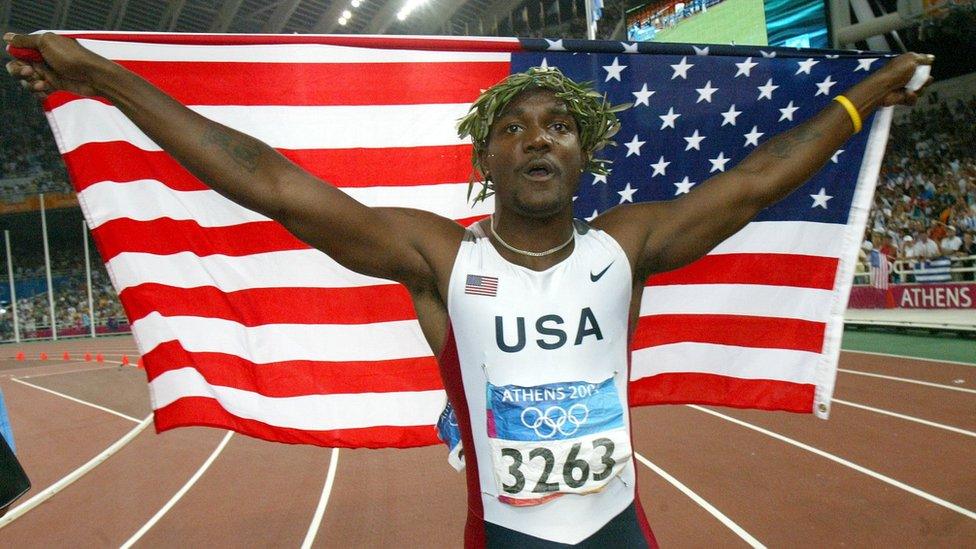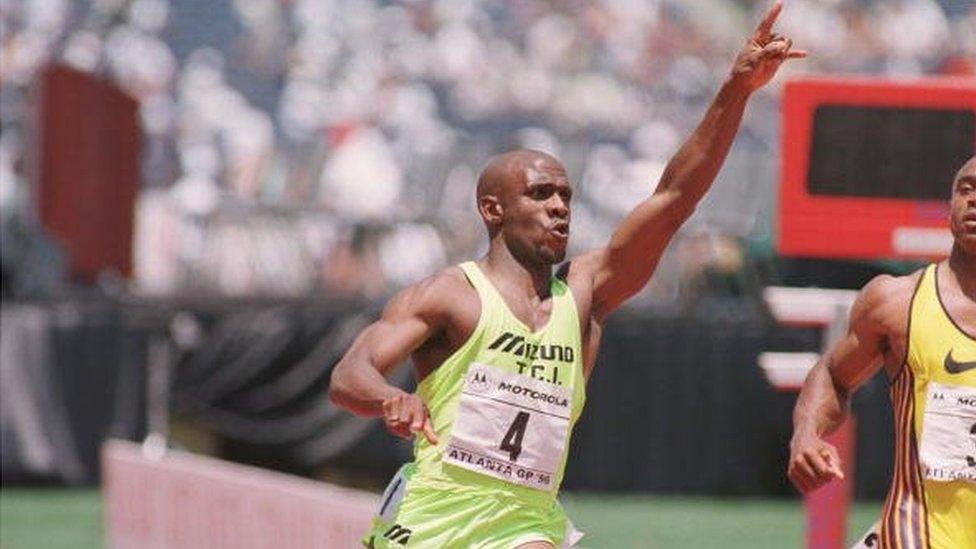Sharapova case: How athletes have fallen foul of the rules
- Published

Russian tennis star Maria Sharapova has admitted failing a drug test because she didn't know the substance was on a banned list under another name. Given how crucial tests are to athletes' performance and reputations, how do they manage to fall foul of the rules?
Not reading your emails
Sharapova says she failed to open an email attachment from the World Anti-Doping Agency (Wada) which classed meldonium as a banned substance as of 1 January 2016.
She had been given it by her family doctor for the past 10 years under the name of mildronate.
The failure of Sharapova and her staff to keep a handle on Wada's changing rules is sure to prove a very costly oversight.

Ohuruogu successfully appealed against her lifetime ban from the Olympics, and went on to win gold in Beijing
Calendar mix-ups
British sprinter Christine Ohuruogu was banned from racing for a year in 2006 for missing three drug tests.
She had failed to be at training locations at times she had specified to testers under a system where athletes had to provide details of where they would be during five hour-long slots each week.
"There was a last-minute change of plan and we decided to go to another track and with the rushing around I didn't make that known to the anti-doping people. I just forgot to let my whereabouts be known," she said.
She later returned to win world and Olympic gold in the 400m in the 2008 Beijing Games and became the first British female to win two World Championship titles when she took gold in Moscow in 2013 to add to her 2007 title.

Gatlin won the Olympic 100m men's title in 2004
Massage cream
US sprinter Justin Gatlin was given a two-year suspension in 2001 for taking a banned amphetamine but said this was due to medication he took for attention deficit disorder. He was allowed to return to competition after just a year.
In 2006 he tested positive again, this time for testosterone. He said he was the victim of sabotage, alleging that his massage therapist Christopher Whetstine, who denies Gatlin's claims, applied a testosterone cream on his legs that resulted in the positive test.
But the authorities didn't accept this defence and he was banned for eight years, later having the term reduced to four years on appeal.
He remains a highly controversial figure in athletics and some have pointed to the irony of Nike being willing to give him a sponsorship deal while suspending their contract with Sharapova.

The woman Gasquet kissed in a Miami nightclub was identities in media reports only as "Pamela"
Too much time in Miami nightclubs
French tennis player Richard Gasquet tested positive for cocaine in 2009 and was given a provisional 12-month ban by the International Tennis Federation (ITF).
However, an ITF panel accepted his explanation that the substance got into his system inadvertently after he kissed a woman in a Miami nightclub.
The tribunal supported his claim and felt that because "no more than a grain of salt" was recorded in the sample a long ban would have been an injustice.

Contador claimed the banned substance had come from contaminated beef
Dodgy meat
Spanish cyclist Alberto Contador tested positive for the banned substance clenbuterol at a rest stop during the Tour de France competition in 2010, which he went on to win.
He maintained that the failed test was a result of eating contaminated meat but the Court of Arbitration for Sport (CAS) disagreed, stripped Contador of his title and gave him a two-year ban.
"In the panel's opinion, on the basis of the evidence adduced, the presence of clenbuterol was more likely caused by the ingestion of a contaminated food supplement," the court said.

Mitchell reportedly said the sex was a treat for his wife's birthday
Too much sex
When US sprinter Dennis Mitchell tested positive for testosterone in 1998, he reportedly blamed the result on the fact that the day before he had had "five bottles of beer and sex with his wife at least four times".
USA Track & Field, the national governing body, cleared him of wrongdoing but the International Association of Athletics Federations disagreed and banned him for two years. He went on to coach Justin Gatlin.